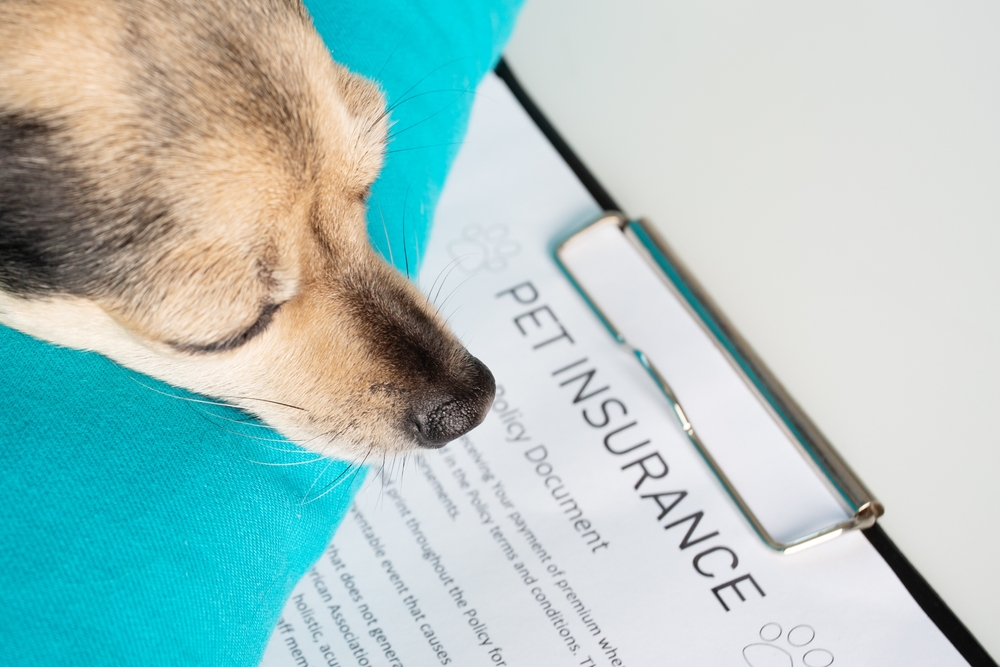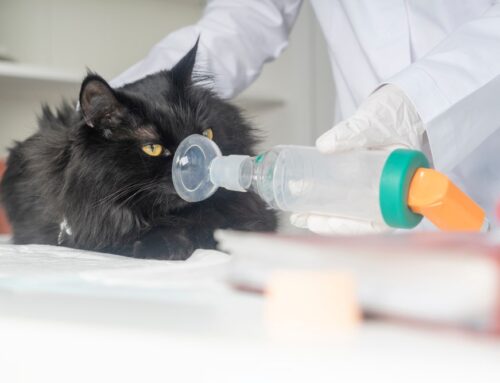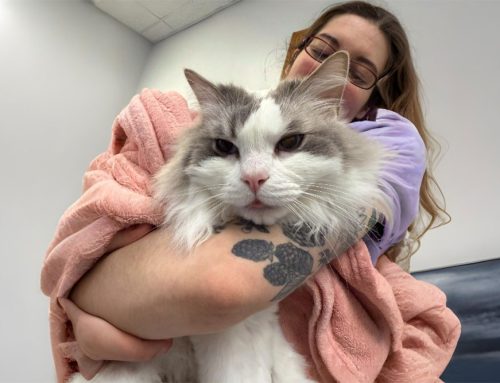As a veterinary urgent care, we know how stressful emergencies can be for pet owners. The late-night panic of a limping dog or a vomiting cat often raises a critical question: “Should I take my pet to the vet?” The costs and decisions can feel overwhelming. We want to help you feel prepared, including understanding how pet insurance can make urgent care decisions easier, more affordable, and faster.
What Makes Veterinary Urgent Care Different?
Urgent care fills a critical gap between routine care and full-scale emergency services. If your pet’s condition isn’t life-threatening but still needs prompt attention—think minor injuries, vomiting, diarrhea, or sudden lameness—urgent care is the right fit. It’s a more cost-effective option than emergency rooms and often provides quicker access to care than waiting for a general practitioner.
Common Conditions Treated in Urgent Care
- Vomiting or Diarrhea: These can range from dietary indiscretions to something more serious, like toxin ingestion.
- Lacerations or Wounds: Urgent care can clean, suture, and provide pain relief.
- Ear Infections: Prompt treatment prevents worsening pain and potential complications.
- Mild Limping: Early evaluation prevents minor sprains from escalating into major injuries.
If you’re unsure whether your pet’s issue is urgent or an emergency, visit our guide to urgent care for a clearer understanding of what we handle.
How Pet Insurance Fits Into Urgent Care Decisions
When deciding whether to bring your pet to urgent care, the financial aspect often weighs heavily. This is where pet insurance becomes invaluable. It allows you to prioritize your pet’s health rather than worrying about the cost.
Why Pet Insurance Matters in Urgent Care
- Immediate Decisions: In urgent situations, time is critical. Insurance ensures you can seek care without hesitation.
- Coverage for Common Conditions: Most pet insurance plans cover illnesses and injuries seen in urgent care, such as infections, minor fractures, and gastrointestinal issues.
- Financial Cushion: Instead of paying large bills out of pocket, you’ll likely receive a significant reimbursement.
Pet Insurance Explained – Pawlicy Advisor Blog covers pet insurance basics.
The Costs of Skipping Urgent Care
While minor issues might resolve on their own, others can escalate into emergencies if left untreated. For example:
- A simple limp could worsen into a torn ligament requiring surgery.
- Vomiting and lethargy might indicate a foreign object, which can lead to intestinal blockages if untreated.
- Ear infections can progress into painful conditions requiring more extensive treatment.
The cost of addressing advanced stages of these issues is often far higher than addressing them early at an urgent care clinic.
How to Decide If Your Pet Needs to See a Vet
When your pet shows unusual symptoms, use these guidelines to help decide:
- Urgent Care: Choose urgent care for sudden, non-life-threatening conditions like limping, vomiting, mild trauma, or infections.
- Emergency Care: Go straight to an ER for life-threatening symptoms such as difficulty breathing, seizures, collapse, or severe trauma.
- Routine Care: For preventive care like vaccines, dental cleanings, or chronic illness management, schedule with your regular veterinarian.
For more details on how urgent care fits into your pet’s healthcare, visit our Urgent Care Services page.
Choosing Pet Insurance That Covers Urgent Care
Not all pet insurance plans are created equal. When selecting a policy, make sure it provides adequate coverage for urgent and emergency visits.
What to Look For
- Comprehensive Accident and Illness Coverage: Covers unexpected injuries, infections, and illnesses commonly seen in urgent care.
- Low Deductibles: Allows you to benefit from coverage for smaller bills typical of urgent care.
- Quick Reimbursement: Some insurers offer fast claims processing, ensuring you’re reimbursed within days.
Plans That Include Emergency Care
Many pet insurance providers now include coverage for urgent care clinics and emergency hospitals. Research plans that suit your pet’s age, breed, and medical history. Older pets and breeds prone to injuries, like Labrador Retrievers or Dachshunds, may benefit from plans with broader accident coverage. Take a look at AAHA’s Guide to Pet Insurance for more information.
Pet Insurance in Action
Imagine this scenario: your dog accidentally eats chocolate. While not immediately fatal, it’s a situation that requires urgent evaluation and treatment. Without pet insurance, the cost of diagnostics and supportive care might deter some owners from seeking care. With insurance, you can confidently bring your dog to urgent care, knowing you’ll receive reimbursement.
Similarly, a cat that stops eating might improve with fluid support and pain management alone, avoiding a much more expensive multi-day trip to an ER later. Pet insurance often covers these costs, reducing your out-of-pocket expense and ensuring your cat gets the care they need right away.
Proactive Steps to Avoid Emergencies
While insurance helps cover costs, proactive care can prevent many urgent situations. Here are tips to keep your pet healthy and safe:
- Annual Wellness Checks: Early detection of conditions like arthritis or diabetes prevents complications.
- Pet-Proofing Your Home: Store toxins, medications, and choking hazards out of reach.
- Diet and Exercise: Maintaining a healthy weight reduces the risk of injuries and chronic illnesses.
- Watch for Subtle Symptoms: Changes in appetite, energy, or bathroom habits often signal early health problems.
- Plan for After-Hours Needs: Know the location and services of your nearest urgent care clinic.
Should You Get Pet Insurance?
From a veterinarian’s perspective, pet insurance is an excellent tool for managing unexpected veterinary expenses. It ensures financial considerations don’t stand in the way of your pet’s care. We often see pets in situations where insurance would make a world of difference for both pets and their owners.

Why Pet Insurance Is Worth It
When a pet becomes ill or injured, acting quickly can make all the difference. Pet insurance allows you to focus on what matters most: your pet’s health. It’s not just for catastrophic emergencies—it’s for the everyday accidents and illnesses that we handle at our clinic every evening.
For personalized advice or help navigating urgent care options, reach out to Animal Urgent Care of Oconomowoc. We’re here to provide care when it matters most.







Leave A Comment